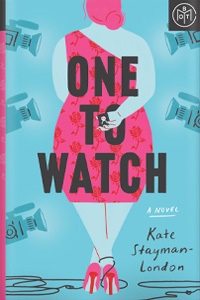One of the movies getting a lot of attention this Oscar season is "The Reader", which is about the relationship between a German teenager who becomes physically and emotionally involved with an older woman in the 60s. The woman turns out to have been a Nazi guard, and is tried in a German court after the Holocaust. The book spans the whole relationship and tell the story from the point of view of Michael Berg, the boy – later the man – whose life was so affected by Hanna Schmitz.
"The Reader" is based on a book of the same name by Bernhard Schlink. I must have bought the book years ago, as it has been sitting on my shelf for a long time with a price tag from The Strand, but I had never read it. I saw the movie a few weeks ago, and decided upon returning home to pick up the book and read it too.
The story is quite compelling. Hanna and Michael develop an admittedly inappropriate sexual relationship after a chance meeting in a street. The relationship, however, goes deeper than that. Hanna - a rather cold, private woman – asks Michael to read books to her during their afternoon trysts, and it is then that she reveals vulnerability and her quixotic emotions. Michael, a sensitive and inexperienced teenager, quickly falls in love with Hanna and learns to tolerate her mood swings and bad temper.
After a few months together, Hanna disappears without a word. Years later, Michael (then a law student) discovers that she is one of several Nazi guards on trial in a nearby town. He attends every day of the trial as part of a seminar he's taking in law school. The second half of the book and movie explore Hanna's guilt, Michael's reaction to learning about who she really was, and the complex path their relationship takes from there.
I'll start with the movie. I liked it a lot – probably the most of any Oscar movie this season (along with "Vicky Cristina Barcelona".The acting is very good. Kate Winslet does an admirable job of portraying a difficult and often extremely unlikeable woman. Both the younger and the older Michael Bergs (the latter played by Ralph Fiennes) are equally convincing. The movie is sad and serious, and ultimately quite thought-provoking.
The book is equally good, but for different reasons. I appreciated the visual aspect of the movie – getting to see the characters, the courtroom, even the (empty) concentration camp scenes. The book, meanwhile, really fleshed out the moral quandaries of the story in a way the movie simply couldn't. I got a much better sense from the book of how much Michael really loved Hanna his whole life. The book also explored the philosophical questions of guilt and responsibility – the main themes of the story – much more successfully than the movie did. I don't fault the acting (never will a bad word about Ralph Fiennes be written on this blog!), or even the screenplay, for that – there are just certain things a book can communicate better than a movie.
For me, the book and the movie complemented each other perfectly. Each of the experiences of reading and watching were made richer by the other. I loved having the visual hooks of the movie in my mind as I was reading, and reading the book really made the movie even more thought-provoking.
I recommend them both. I usually prefer to read a book before seeing it as a movie, but the reverse worked just fine for me here.
I'd love to hear from others on this – did you have a preference for the book or the movie?










About Me
I have been blogging about books here at Everyday I Write the Book since 2006. I love to read, and I love to talk about books and what other people are reading.